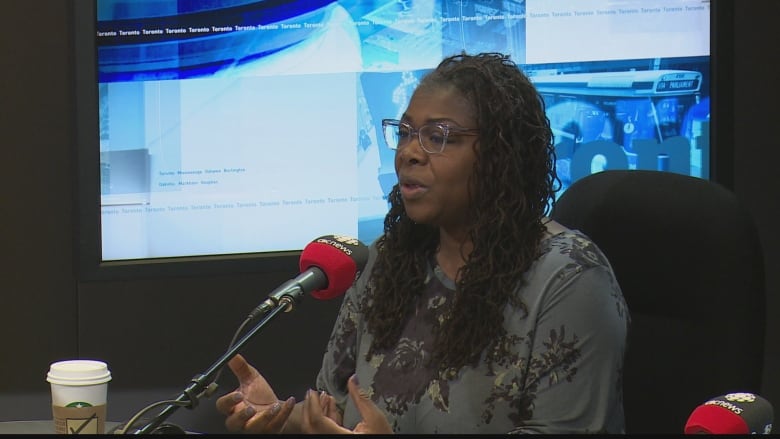Black History Month is good time to talk about racism, says Toronto writer
Mother of 4 says current events provide 'teachable moments' to have difficult conversations

Black History Month is a good time to talk to children about racism in Canada, says a Toronto writer and mother.
Samantha Kemp-Jackson, who writes about parenting, told CBC's Metro Morning on Family Day that it's important to celebrate the achievements of black Canadians in February, but also to have what may be difficult conversations with your children about discrimination and violence that arises from intolerance.
-
Painful but necessary: Why I stopped putting off the racism talk with my daughter
-
How to talk to your kids about racism: tips from parenting expert
"Well, I think that, unfortunately, our kids are hearing things even if we don't bring it to them. They hear it around them, either on the news, on TV, or on the playground. I think that we need to use those opportunities as teachable moments," she said.
Raise kids to be advocates

It's a chance not only to provide information but also to instill values. Ask children what they are learning in school about Black History Month, she said.
"We are so fraught in society with this discussion about race," she said. "We are talking about it at the dinner table all the time and our kids hear about it."
Kemp-Jackson said it's important to frame the conversation in an empowering way and to talk about "the positives" as well as "the negatives." Black Lives Matter, police killings of unarmed black people and the Trump administration all have put the issue of race front-and-centre, she said.
"We need to raise our kids to be advocates and to be confident in their abilities and to stand up to racism," she said.
Talk to them on their level
"It's like anything. When a child asks you a question, I think that we are obliged, as parents, to guide them in terms of how we feel, but talk to them on their level," she said.
Kemp-Jackson suggests explaining why a violent event occurred. An example is the attack on a mosque in Quebec City in which six people were gunned down while praying. Discussing that incident would allow parents to explore Islamophobia, she said.
"So perhaps they have heard something on the news and you can say to them: 'You know, I think you might have heard about something really bad that happened. Why did this happen? Well, it happened because people have different ideas about race or what people look like. They're not based in fact or reality,'" she said.
"So what you are doing is talking to them on their level, but also you are encouraging critical thinking of your children to ask questions and also to counter what the narrative is out there."
Discuss Canada's own 'ugly history'
As Canada nears its 150th birthday in July, she said another good opportunity is presenting itself to talk about race relations.
She said Canada has its own "ugly history" of racism and children need to hear those stories too. It's not simply a story of multiculturalism and diversity.
"I don't think we should sugar coat it. And I don't think we should paint it with a broad brush, saying that we were perfect. We're not.
"We do tend to, as Canadians, feel a little bit better than perhaps our southern neighbours, but we have own our history, a very ugly history, unfortunately, of racism. We had residential schools. We did have some slavery here," she said.
"We need to talk to our kids about that and then move on from that."
With files from Metro Morning